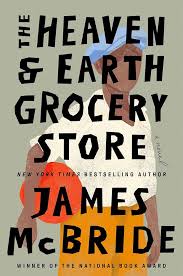Chapter 23: Bernice’s Bible
byChapter 23: Bernice’s Bible begins in the thick woods behind a jook joint where Fatty, engrossed in the mechanical intricacies of an old convertible, is interrupted by Rusty’s shout. His sister, Bernice, had arrived, and Fatty’s immediate reaction was one of skepticism. He wasn’t sure why she was there, but the mention of a visit from her set the tone for what would unfold. Fatty, leaning over the car’s hood, was knee-deep in the idea of selling the old vehicle he had found behind a demolished house. Although uncertain of its exact make, he had hope that it might be worth something, perhaps enough to provide him with the “get-out-of-town” money he’d dreamed about. Yet, as he stepped onto the porch to meet Bernice, it became clear that she had more than just family business on her mind.
Sitting down beside his sister, Fatty was taken aback by the change in her demeanor. For years, their relationship had been strained—much of it stemming from disputes about their father’s estate, and a growing distance between them as their lives veered in different directions. While he had chosen a life of rough living, including selling booze from the jook joint, Bernice had fallen into a stricter, more moral path, one that involved raising her children and clinging to religious faith. The years had transformed her; the once vibrant and promising woman was now a mother with a brood of children and an increasingly rigid worldview. The conversation turned to their father, and Fatty, though dismissive of Bernice’s concerns about the past, couldn’t ignore the tension that lingered between them. Bernice had something for him—a “gift,” as she called it—and though Fatty was initially uninterested, the mention of money piqued his curiosity.
The conversation took a sharp turn when Bernice brought up their father’s past dealings with the local Jewish community. She questioned Fatty about the water pipes their father had laid years ago, around the Hayes and Franklin area, and the deeper connection it had with the church. Bernice’s inquiry revealed a potential link to hidden assets, something Fatty wasn’t prepared to confront. This revelation spurred a more complex conversation between the two. Despite their estrangement, the topic of their father’s unfinished business seemed to weave them back together, even if only momentarily. The mystery surrounding the pipes, the well, and the property hinted at a deeper, more important matter—one that could shift the course of Fatty’s life.
Fatty’s skepticism about the package Bernice had brought, assuming it was yet another Bible, reflected his longstanding dismissiveness toward her attempts to moralize. He had little patience for religious talk and even less for the reminder of his past. Yet, as Bernice placed the package on the bench and made clear it was not another Bible, Fatty’s curiosity began to grow. With his eyes narrowing, he asked, “Does that package have four hundred dollars in it?” The exchange highlighted not just the strained sibling dynamic but also the latent hope that something—anything—could alter the course of his mundane existence.
As they talked, Fatty realized that his life, much like the abandoned car in the woods, was filled with forgotten opportunities, old hopes, and the ghosts of past decisions. The years of resentment between him and Bernice had clouded his judgment. However, in this moment, the mention of money and the mystery surrounding his father’s work seemed to offer a potential escape from his stagnation. The idea of a well-hidden beneath the dirt, literally and figuratively, served as a metaphor for the opportunities buried under years of bitterness and regret.
In this chapter, the emphasis on Fatty’s changing attitude toward his sister and his father’s legacy offers valuable insight into the complexities of family relationships and unspoken history. As the story unfolds, the reader is led to consider the deep-seated emotional and financial burdens that many carry without acknowledging them. The unresolved tensions, both familial and economic, are part of a larger narrative about heritage, struggle, and the pursuit of redemption or simply survival. The mystery of the water pipes and the potential treasure buried beneath them represents the possibilities that remain even when the past feels like a weight too heavy to bear.
As Fatty struggles with his conflicting emotions—resentment, guilt, and the allure of a fresh start—readers are reminded of the importance of facing the past to truly move forward. This chapter invites contemplation on the themes of legacy, personal growth, and the choices that define one’s future. It is a reminder that, while some aspects of life may seem set in stone, there are always hidden paths, waiting to be uncovered, that could lead to a new beginning.


